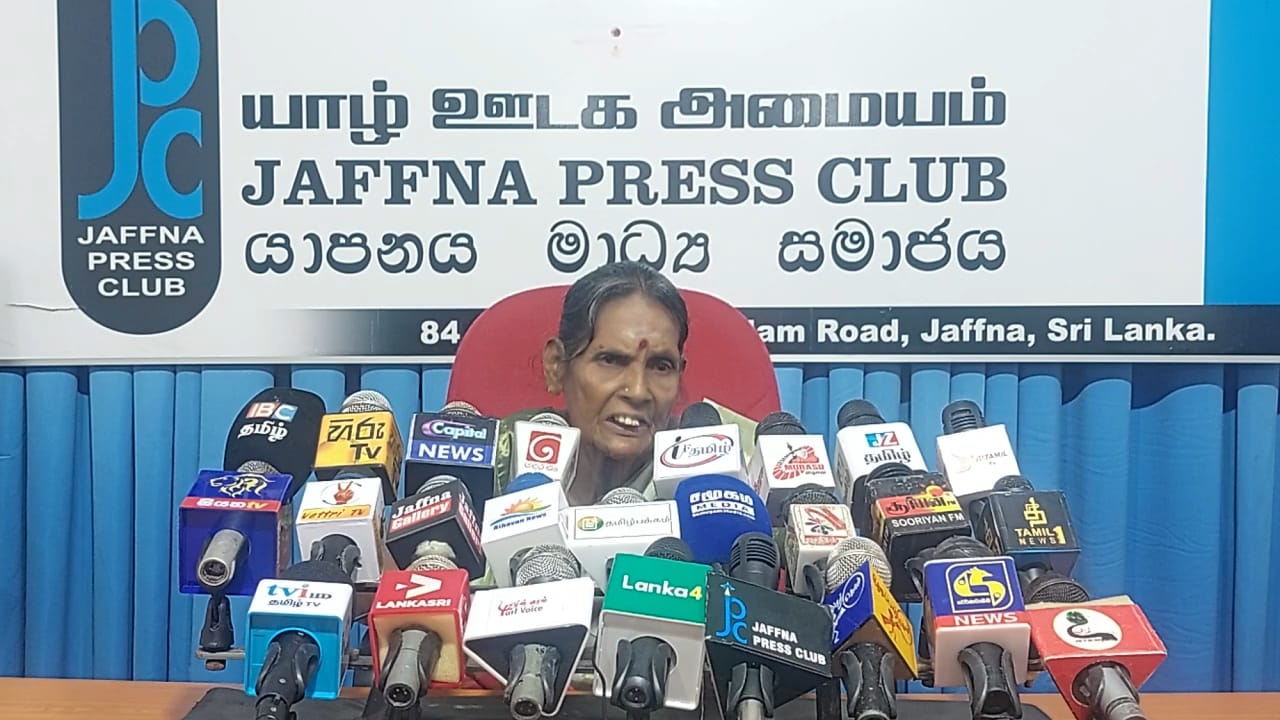
Seelavati Nadarasa, a Sinhalese mother of three fallen LTTE fighters, called to be able to remember their sacrifices in peace ahead of Maaveerar Naal – or Heroes Day – next month.
“Even if I am a Sinhalese woman, I will die in this land,” Nadarasa told reporters at the Jaffna Press Club. "Until that day comes, let us light lamps and honour our children in peace.”

Seelavati Nadarasa, a Sinhalese mother of three fallen LTTE fighters, called to be able to remember their sacrifices in peace ahead of Maaveerar Naal – or Heroes Day – next month.
“Even if I am a Sinhalese woman, I will die in this land,” Nadarasa told reporters at the Jaffna Press Club. "Until that day comes, let us light lamps and honour our children in peace.”
Nadarasa expressed frustration with politicians who, she noted, only seek families out during election season, asking for votes with promises that remain unfulfilled. "They come to our homes, ask for our votes, and then turn their backs," she said.
“I gave three heroes for this land,” she said, describing herself as now poor and weak. But she made clear that her loyalty to her children’s legacy is unshakeable.
Nadarasa emphasized that the memory of fallen heroes should be preserved with dignity, calling on the community to protect the maveerar thuyilum llams – the LTTE cemeteries which housed graves of fallen fighters - and memorials, built in remembrance to honour those lost in the armed struggle. She urged that any future commemoration efforts, including organizing Heroes’ Day events, should involve the family members of the fallen, not politicians or outside voices.
“Politicians should not be afraid to say our children’s names,” she said, criticizing what she views as a lack of courage in leaders to recognize and honour the heroes openly. “No politician should come here, using our children’s names to gain support, only to leave us behind once again."
Maaveerar Naal takes place on November 27th and honours those who gave their lives for the Tamil liberation struggle.
Since the end of the armed conflict, the Sri Lankan state has routinely cracked down on commemorations and memorialisation efforts of the Tamil nation. LTTE graves were bulldozed, with several now being destroyed and military bases built on top of them.
